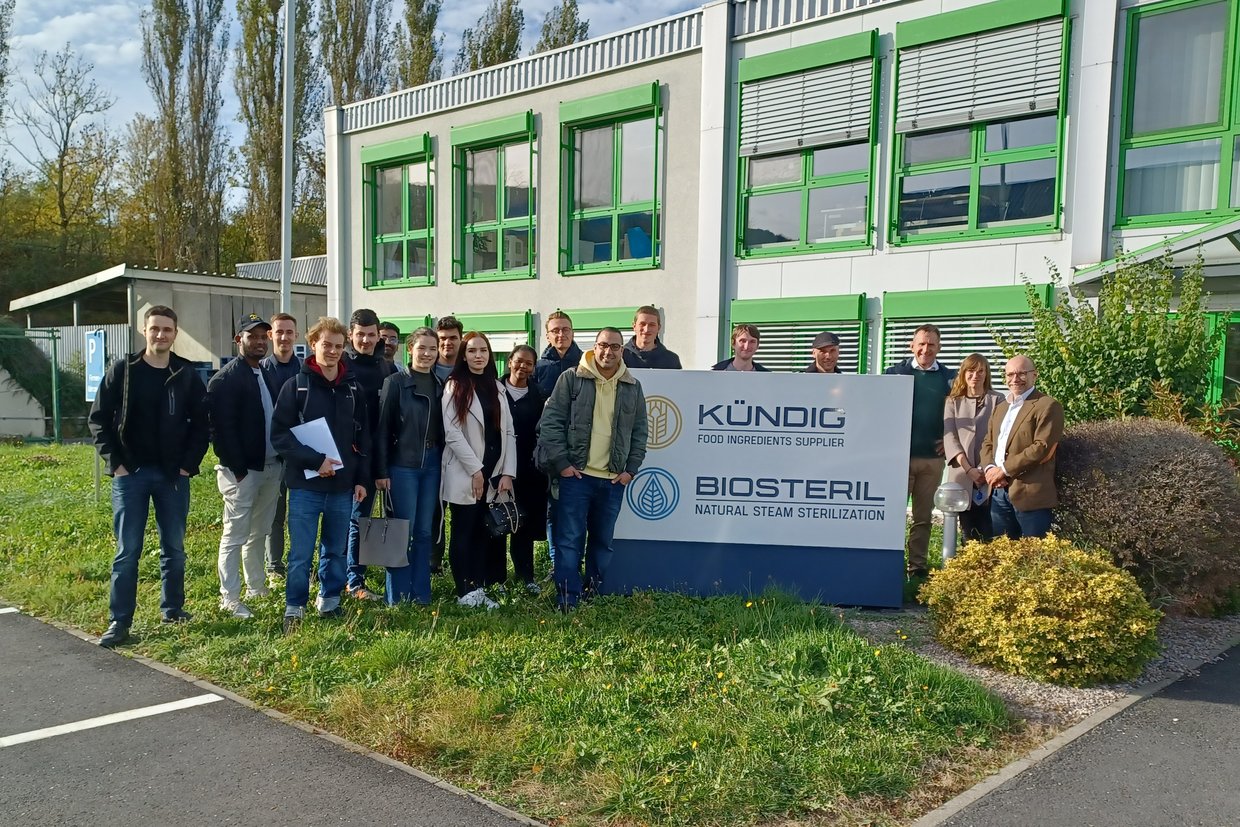Sweet potato cubes for the confectionery industry, ground nettle powder for pharmaceuticals or paprika powder for potato potato chips - these and other food ingredients and dry products are produced by Kündig Nahrungsmittel GmbH & Co. KG Deutschland produces these and other food ingredients and dry products at its site in Ritschenhausen in southern Thuringia. Last Wednesday, selected students from the faculty and their professor Michael Dornieden were welcomed there by Managing Director Dr. Lutz Guderjahn.
The long-established company with its headquarters in Zurich has been present in Ritschenhausen since 2003 and has grown steadily since then. "We produce around 10,000 tons of different foods here every year in a purely B2B business with around 130 employees. We are seeing a steady increase in demand from our corporate customers for organic food from sustainable cultivation," said Lutz Guderjahn in his introductory company presentation. Afterwards, divided into two smaller groups of visitors and provided with hygiene clothing, they went into production.
Under the expert guidance of quality management officer Ulrike Bockhammer and production manager Torsten König, the students gained an in-depth insight into the entire process chain of highly sensitive food processing.
For example, pre-dried onion slices packed in disposable cardboard boxes from China have to be unloaded completely manually from the overseas containers and pre-picked for subsequent granulation. The company is particularly proud of the gentle sterilization process (Biosteril®) and the so-called Kündig Food Safety Tower (KFST®). Production Manager TorstenKönig: "In this highly automated system, we can map several production steps simultaneously. One of these is the mechanical sorting of bad material such as stones or metal parts in the shredded dried vegetables. These are detected by laser in 38 milliseconds and blown out by a stream of air. This helps us to ensure the consistently high quality of our quality-critical products. Our corporate customers from the pharmaceutical and food industries must be able to rely on this one hundred percent."
After the extensive factory tour, the students were able to share their impressions and address prepared questions to the company representatives. In his closing remarks, Lutz Guderjahn thanked the group of visitors and encouraged further contact with the faculty.

